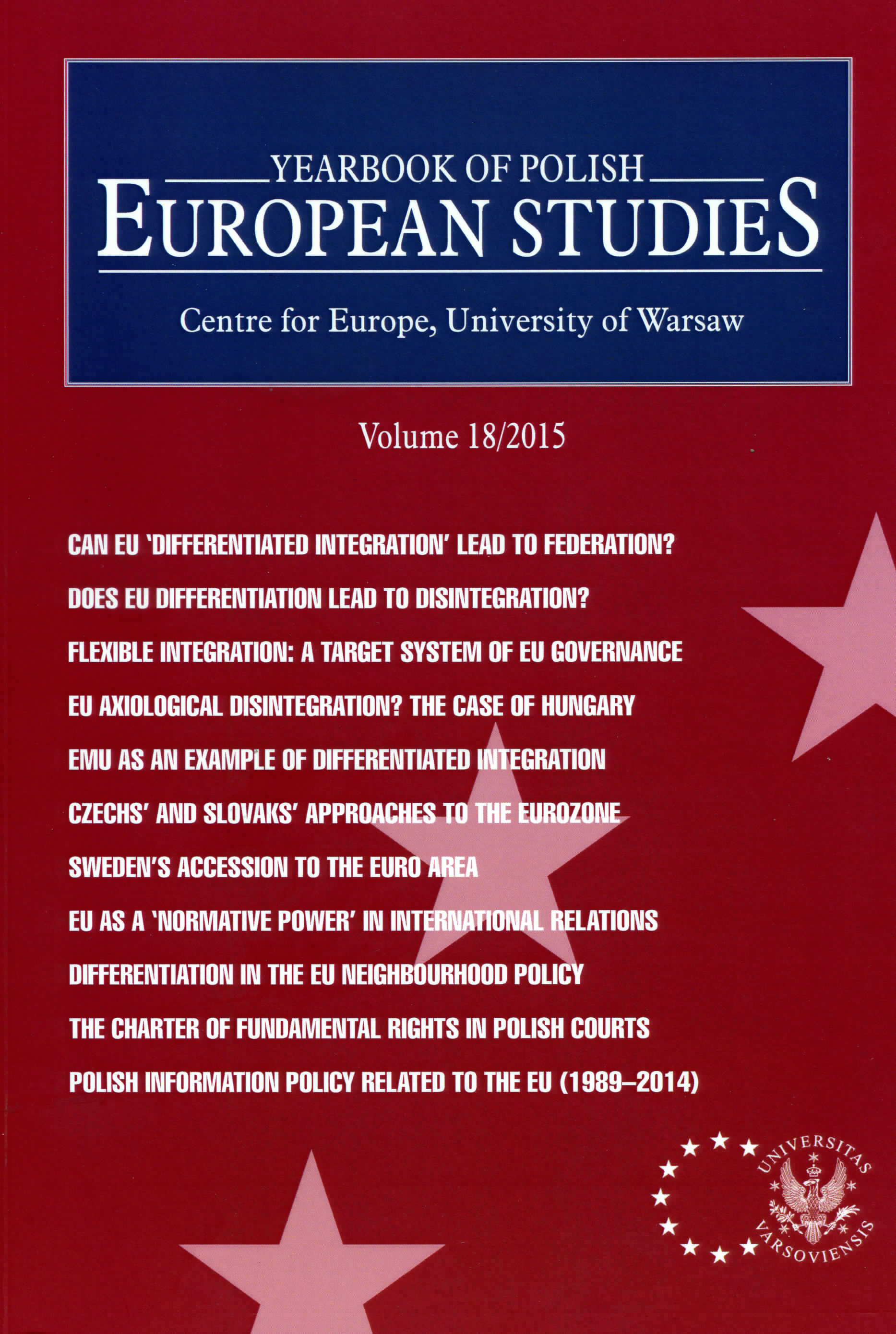Sweden’s Accession to the Euro Area and the Principle of Sincere Cooperation in the European Union
Sweden’s Accession to the Euro Area and the Principle of Sincere Cooperation in the European Union
Author(s): Tomasz KubinSubject(s): Politics / Political Sciences, Politics, Economy, EU-Accession / EU-DEvelopment
Published by: Centrum Europejskie Uniwersytetu Warszawskiego
Keywords: Sweden; Euro Area; European Union
Summary/Abstract: While Sweden is one of the EU Member States outside the euro area, interms of both its legal and economic situation its position in the context of membership in the Economic and Monetary Union is special and different from both Denmark and the UK, as well as the six EU Member States from Central Europe which remain outsidethe monetary union. This study presents Sweden’s policy concerning its membership in the EMU in the context of the principle of sincere cooperation in the EU. In the first part,the legal and political context of Sweden’s membership in the EMU is briefly outlined. Sweden has no legal basis to permanently remain outside the euro area. The second partis devoted to the question of to what extent Sweden fulfills the conditions of membership in the euro area – it has met the economic conditions for membership in the monetary union exceptionally well. In the third part, the principle of sincere cooperation is discussed inlight of provisions of the treaties, EU legal doctrine and the jurisprudence of the Court of Justice of the EU. Taking this into account, Sweden’s policy towards membership in the EMU raises very serious doubts about whether it is consistent with one of the basic principles on which the functioning of the EU is based, i.e. the principle of sincere cooperation.
Journal: Yearbook of Polish European Studies
- Issue Year: 2015
- Issue No: 18
- Page Range: 211-235
- Page Count: 26
- Language: English

